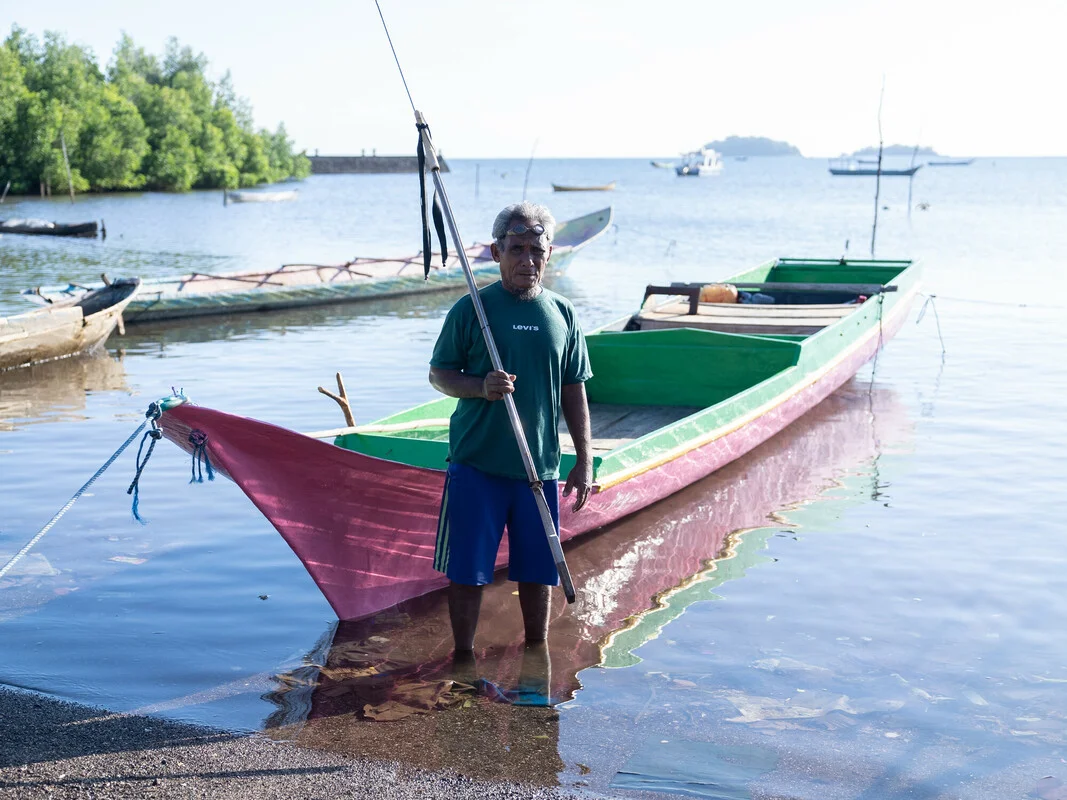Communities in low-income countries feel the impacts of climate change more than anyone — and those impacts are not always obvious from the outside.
Alongside the destruction and devastation that comes from worsening fires, floods or droughts, climate change also results in unseen impacts on cultures, identity, gender inequality and mental health. That’s why Oxfam in Bangladesh developed the Loss and Damage Dashboard: a community-driven tool highlighting the costs of climate change and bringing people’s lived experiences to the forefront of climate decision-making.
The Loss and Damage Dashboard is an innovative platform that gives communities the power to document and validate the full cost of climate change in real time and in their own terms. From lost crops and damaged homes to trauma, displacement and cultural loss, the Dashboard captures both economic and non-economic harms that are too often invisible in traditional climate assessments.
The Loss and Damage Dashboard: making clear the unseen
“Loss and damage” refers to the destruction caused by climate change that exceeds people’s ability to adapt, and that they had little or no role in causing. In Bangladesh, these impacts range from flooding and saltwater intrusion to forced migration, lost livelihoods and irreparable damage to social and cultural systems.
Until recently, there has been no effective way to capture the full picture. A lot of existing frameworks for assessing loss and damage don’t factor in this kind of data, and most international climate finance still focuses on reducing emissions or helping people adapt to future risks, not on the irreversible losses already being experienced by hundreds of millions right now.
The Dashboard helps shift this imbalance. It allows people to submit reports using a mobile phone or a toll-free voice system. Each entry is geo-tagged and then validated using satellite imagery, earth observation data and historical climate records, representing a powerful combination of local experience and scientific verification.
Early findings: beyond costs
Between June 2023 and March 2024, over 11,500 incidents were reported across 19 districts in Bangladesh, totaling more than AUD $17 million in damage. For each person that reported loss and damage, they experienced an average loss of AUD $1500, equivalent to 15 months of work for the average Bangladeshi.
The largest category was not infrastructure or agriculture, but non-economic loss. This includes mental health impacts, family and community breakdown, and gender-based violence. Women reported gender-specific impacts, with high rates of water-borne disease, malnutrition, skin conditions and reproductive health problems, borne from persistent climate-induced impacts such as food insecurity and unsafe living conditions. These kinds of harms, brought to the fore through the Dashboard, are often either unseen or sidelined in policy and funding decisions.
A tool for frontline communities and global decision-makers
The Loss and Damage Dashboard cuts through the noise of international negotiations and shows how people and communities are bearing through compounding climate impacts right now. With the UN Fund for Responding to Loss and Damage entering a start-up phase later this year, the need for credible, locally generated data has never been more urgent.
Bangladesh is showing the world what locally led, community-powered climate solutions can look like. With the right tools and the right commitments, we can turn evidence into justice.
As a regional neighbour, Australia has both the opportunity and the obligation to support this work. Australia has committed to supporting the Fund for Responding to Loss and Damage and has recently become a member of its Board. But if we are serious about climate justice, our support must go beyond financial contributions. We must also help ensure that funding reaches the communities who need it most, and that tools like the Dashboard are funded, replicated and integrated into decision-making processes.
Whether through climate finance or advocacy at global forums, Australia can help ensure that climate-related loss and damage is no longer invisible, underestimated or ignored.



